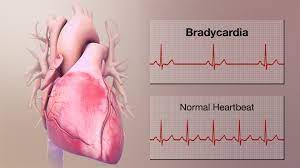A client receives a new prescription for montelukast. Which information should the nurse include in the client's teaching?
The medication will contract the smooth muscles located in the respiratory tract.
Montelukast will help repair damaged tissue in the base of the lungs.
The medication will prophylactically limit the inflammatory response to allergens.
Montelukast will increase the production of mucus in the lungs.
The Correct Answer is C
A) Montelukast does not directly contract smooth muscles in the respiratory tract. Instead, it helps reduce inflammation and bronchoconstriction.
B) Montelukast does not repair damaged lung tissue. It primarily addresses the inflammatory component of asthma and allergies.
The information the nurse should include in the client's teaching about montelukast is:
C) The medication will prophylactically limit the inflammatory response to allergens.
Explanation:
Montelukast is a leukotriene receptor antagonist used to manage and prevent asthma symptoms and allergies. It works by blocking the action of leukotrienes, which are chemicals in the body that contribute to inflammatory responses. By limiting the inflammatory response to allergens, montelukast helps reduce symptoms like wheezing, coughing, shortness of breath, and allergic rhinitis.
D) Montelukast does not increase the production of mucus in the lungs. In fact, it can help reduce excessive mucus production associated with allergic reactions and asthma.
Nursing Test Bank
Naxlex Comprehensive Predictor Exams
Related Questions
Correct Answer is C
Explanation
A. Hypertension:
Hypertension (high blood pressure) is not typically associated with piperacillin-tazobactam. While monitoring blood pressure is important during infusions, it is not a reason to stop the infusion on its own.
B. Pupillary constriction:
Pupillary constriction (miosis) is not a common adverse reaction to piperacillin-tazobactam. It is not a primary reason to stop the infusion.
When a client receiving an infusion of piperacillin-tazobactam for a urinary tract infection reports not feeling well, the manifestation that the nurse should identify as a reason to stop the infusion is:
C. Bradycardia.
Explanation: Bradycardia (a slow heart rate) can be an adverse reaction to piperacillin-tazobactam. While it is important to monitor vital signs during the administration of antibiotics, particularly for signs of an allergic reaction or anaphylaxis, bradycardia is a specific manifestation that can be associated with this medication. Stopping the infusion and assessing the client's condition further is appropriate if bradycardia occurs.
D. Scratchy throat:
A scratchy throat could be a sign of an allergic reaction but is not specific to piperacillin-tazobactam. Other signs of an allergic reaction, such as rash, itching, swelling, or difficulty breathing, would be more concerning. In such cases, the infusion should be stopped and appropriate interventions initiated.

Correct Answer is {"A":{"answers":"B"},"B":{"answers":"A"},"C":{"answers":"C"},"D":{"answers":"c"},"E":{"answers":"c"}}
Explanation
Here are the potential effects of each drug on captopril's blood pressure effects:
Losartan: Decrease - Losartan is an angiotensin receptor blocker (ARB) that can lower blood pressure. When used in combination with captopril (an ACE inhibitor), it may enhance the antihypertensive effects, potentially leading to an additive blood pressure-lowering effect.
Ibuprofen: Increase - Ibuprofen, a nonsteroidal anti-inflammatory drug (NSAID), can lead to sodium and water retention and potentially raise blood pressure. When combined with captopril, it may diminish captopril's blood pressure-lowering effects.
Amlodipine: No Effect - Amlodipine is a calcium channel blocker used to treat high blood pressure. It has a different mechanism of action than captopril and combining them typically does not interfere significantly with each other's effects.
Sulfa: No Effect - Sulfonamides (sulfa drugs) are antibiotics that generally do not directly impact blood pressure or interact with antihypertensive medications like captopril in terms of blood pressure effects.
Insulin lispro: No Effect - Insulin lispro is used to manage blood glucose levels in diabetes. While uncontrolled blood glucose can indirectly affect blood pressure, insulin lispro itself does not directly interact with captopril's blood pressure effects.
Please note that drug interactions can be complex, and individual responses may vary. It's crucial for the healthcare provider to monitor the patient's blood pressure and adjust medications as needed to achieve optimal control.
Whether you are a student looking to ace your exams or a practicing nurse seeking to enhance your expertise , our nursing education contents will empower you with the confidence and competence to make a difference in the lives of patients and become a respected leader in the healthcare field.
Visit Naxlex, invest in your future and unlock endless possibilities with our unparalleled nursing education contents today
Report Wrong Answer on the Current Question
Do you disagree with the answer? If yes, what is your expected answer? Explain.
Kindly be descriptive with the issue you are facing.
